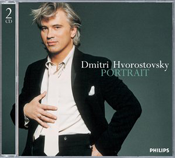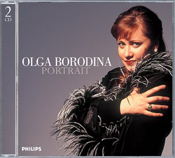Recently in Recordings
The Sixteen continues its exploration of Henry Purcell’s Welcome Songs for Charles II. As with Robert King’s pioneering Purcell series begun over thirty years ago for Hyperion, Harry Christophers is recording two Welcome Songs per disc.
In February this year, Albanian soprano Ermonela Jaho made a highly lauded debut recital at Wigmore Hall - a concert which both celebrated Opera Rara’s 50th anniversary and honoured the career of the Italian soprano Rosina Storchio (1872-1945), the star of verismo who created the title roles in Leoncavallo’s La bohème and Zazà, Mascagni’s Lodoletta and Puccini’s Madama Butterfly.
Collapsology. Or, perhaps we should use the French word ‘Collapsologie’ because this is a transdisciplinary idea pretty much advocated by a series of French theorists - and apparently, mostly French theorists. It in essence focuses on the imminent collapse of modern society and all its layers - a series of escalating crises on a global scale: environmental, economic, geopolitical, governmental; the list is extensive.
Amongst an avalanche of new Mahler recordings appearing at the moment (Das Lied von der Erde seems to be the most favoured, with three) this 1991 Mahler Second from the 2nd Kassel MahlerFest is one of the more interesting releases.
If there is one myth, it seems believed by some people today, that probably needs shattering it is that post-war recordings or performances of Wagner operas were always of exceptional quality. This 1949 Hamburg Tristan und Isolde is one of those recordings - though quite who is to blame for its many problems takes quite some unearthing.
The voices of six women composers are celebrated by baritone Jeremy Huw Williams and soprano Yunah Lee on this characteristically ambitious and valuable release by Lontano Records Ltd (Lorelt).
As Paul Spicer, conductor of the Royal Birmingham Conservatoire Chamber Choir, observes, the worship of the Blessed Virgin Mary is as ‘old as Christianity itself’, and programmes devoted to settings of texts which venerate the Virgin Mary are commonplace.
Ethel Smyth’s last large-scale work, written in 1930 by the then 72-year-old composer who was increasingly afflicted and depressed by her worsening deafness, was The Prison – a ‘symphony’ for soprano and bass-baritone soloists, chorus and orchestra.
‘Hamilton Harty is Irish to the core, but he is not a musical nationalist.’
‘After silence, that which comes closest to expressing the inexpressible is music.’ Aldous Huxley’s words have inspired VOCES8’s new disc, After Silence, a ‘double album in four chapters’ which marks the ensemble’s 15th anniversary.
A song-cycle is a narrative, a journey, not necessarily literal or linear, but one which carries performer and listener through time and across an emotional terrain. Through complement and contrast, poetry and music crystallise diverse sentiments and somehow cohere variability into an aesthetic unity.
One of the nicest things about being lucky enough to enjoy opera, music and theatre, week in week out, in London’s fringe theatres, music conservatoires, and international concert halls and opera houses, is the opportunity to encounter striking performances by young talented musicians and then watch with pleasure as they fulfil those sparks of promise.
“It’s forbidden, and where’s the art in that?”
Dublin-born John F. Larchet (1884-1967) might well be described as the father of post-Independence Irish music, given the immense influenced that he had upon Irish musical life during the first half of the 20th century - as a composer, musician, administrator and teacher.
The English Civil War is raging. The daughter of a Puritan aristocrat has fallen in love with the son of a Royalist supporter of the House of Stuart. Will love triumph over political expediency and religious dogma?
Beethoven Symphony no 9 (the Choral Symphony) in D minor, Op. 125, and the Choral Fantasy in C minor, Op. 80 with soloist Kristian Bezuidenhout, Pablo Heras-Casado conducting the Freiburger Barockorchester, new from Harmonia Mundi.
A Louise Brooks look-a-like, in bobbed black wig and floor-sweeping leather trench-coat, cheeks purple-rouged and eyes shadowed in black, Barbara Hannigan issues taut gestures which elicit fire-cracker punch from the Mahler Chamber Orchestra.
‘Signor Piatti in a fantasia on themes from Beatrice di Tenda had also his triumph. Difficulties, declared to be insuperable, were vanquished by him with consummate skill and precision. He certainly is amazing, his tone magnificent, and his style excellent. His resources appear to be inexhaustible; and altogether for variety, it is the greatest specimen of violoncello playing that has been heard in this country.’
Baritone Roderick Williams seems to have been a pretty constant ‘companion’, on my laptop screen and through my stereo speakers, during the past few ‘lock-down’ months.
Melodramas can be a difficult genre for composers. Before Richard Strauss’s Enoch Arden the concept of the melodrama was its compact size – Weber’s Wolf’s Glen scene in Der Freischütz, Georg Benda’s Ariadne auf Naxos and Medea or even Leonore’s grave scene in Beethoven’s Fidelio.
Recordings

14 Nov 2007
Portraits of Dmitri Hvorostovsky and Olga Borodina
Philips decided some time ago that it no longer needed to be the audio representative for two fine contemporary singers of Russian origin, mezzo Olga Borodina and baritone Dmitri Hvorostovsky.
But the company is more than
happy to recycle selections from the recordings the two artists made for the
label and issue them in two-CD sets in their "Portrait" series.
The slim booklets for each set feature a cover photograph of the artist,
with both clutching themselves and turning an enigmatic, suggestive smile to
the camera. After the track listing comes a short bio in three languages, and
then a page of all the producers, engineers, and recording locales of the
original releases. No texts, of course.
As a retrospective of each singer's early maturity, the Hvorostovsky
Portrait has an edge over Borodina's. CD 1 of the baritone's set has
three Verdi arias from a recording with Valery Gergiev, and then 5 bel canto
selections with Ion Marin. Then Gergiev returns, leading the Rotterdam
Philharmonic in providing Hvorostovsky's support for the big Tchaikovsky
baritone arias from Eugene Onegin and Pique Dame. The Kirov
plays for Gergiev in the final 5 tracks of more Russian repertory
(Tchaikovsky, Rubinstein, and Rimsky-Korsakov).
This gives the listener an excellent taste of Hvorostovsky's operatic
skills, his gorgeous tone and enviable breath control on display in every
selection. Some find the voice almost too pretty for Verdi, but surely the
baritone's Rodrigo from Don Carlo is without peer on the contemporary opera
scene. The Largo al factotum is high-spirited, even without that
traditional last falsetto cry of "Feeee-ga-ro." In the Russian pieces, the
years have only added to the artist's depth of characterization, though these
early 1990's recordings certainly satisfy on the sheer basis of vocal
splendour.

Disc two begins with some "antiche arien," including Handel's Ombra
mai fu. As Borodina also sings this on her set, this allows for a point
of comparison. The mezzo lets her gorgeous voice fill out the melodic line,
lusciously but ostentatiously. Hvorostovsky somehow seems to let his voice
support the melody's innate loveliness, rather than compete with it, and his
version is the lovelier for it. Some Tchaikovsky and Rachmaninoff songs
follow, with piano accompaniment. An excellent recitalist, Hvorostovsky
manages the tricky feat of making a recording feel like an intimate
encounter. The dramatic conclusion of the set comes with Gergiev again
leading the Kirov as the baritone sings the Shostakovich orchestration of
Moussorgsky's "Songs and Dances of Death." Hvorostovsky's is not the darkest
of voices, and he doesn't try to force an ugly edge. Instead, the very
silkiness of his delivery plays against the text in a way that presents a
sinister effect. There are more potent versions, but the music is very well
served.
Borodina's set does more skipping around in musical eras. It starts with
Dalila's big aria, then two from Rossini's Rosina. The Ombra mai fu
is followed by Preziosilla's numbers from the Gergiev La Forza del
Destino set. Instead of showing off the singer's versatility,
unfortunately, this arrangement tends to emphasize the sameness of her
artistic approach, which basically amounts to a reliance on the beauty of her
instrument over characterization. Yes, she can sing Ponchielli, and Berlioz,
and Purcell - but the singing doesn't reflect much of an awareness that these
are very different composers.
The second disc, thankfully, is dedicated to Russian repertory (except for
three quite charming songs from Falla's Siete canciones populares
españolas. Whether in song or opera, Borodina in her native tongue has
a life and a sensitivity in her singing less apparent in other languages.
Here the undeniable lusciousness of her instrument is partnered with a
detailed interpretative stance, and the greatness of her artistry is
undeniable. The disc ends with a luscious performance of a Psalm from
Rachmaninoff's Vespers. Even the famously glum Rachmaninoff would
have smiled at the beauty here.
The many original releases that both these compilations came from would be
very hard to track down these days, so fans of either singer who missed out
on those discs should look for these "Portrait" CDs.
Chris Mullins

